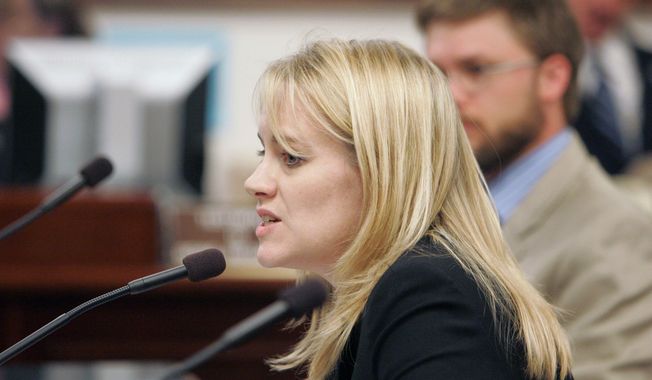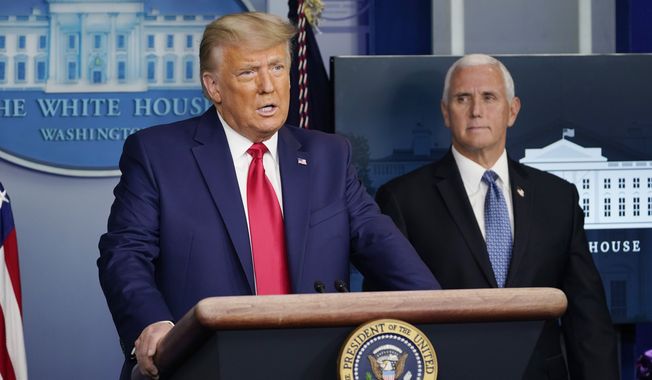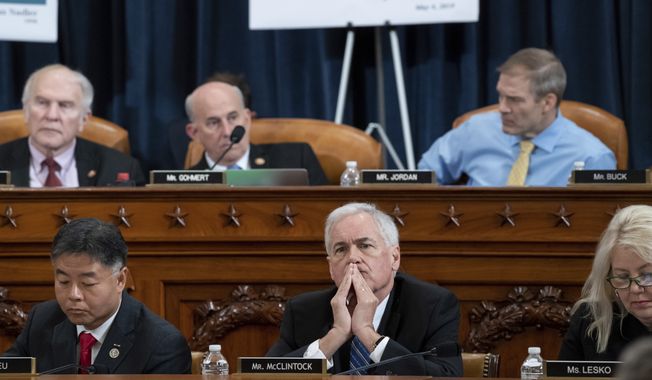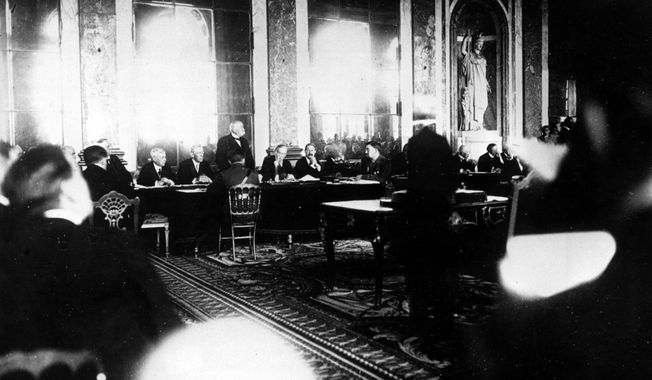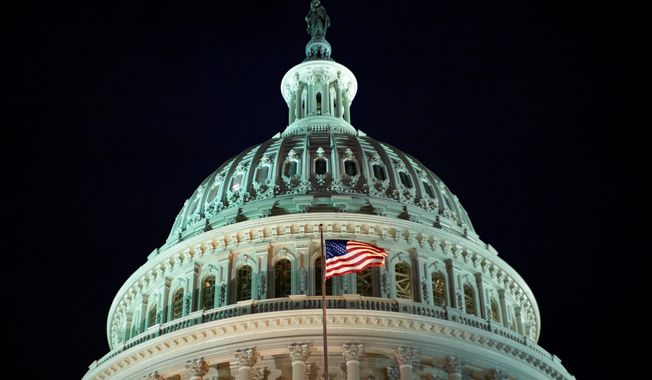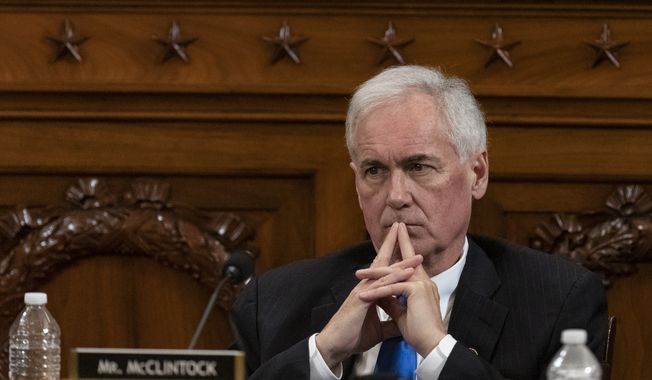
To the Republic: Rediscovering the Constitution
About the project
In her nearly 250 years of independence, America has endured brutal wars, catastrophic natural disasters and ravaging economic depressions. Through every challenge, she has survived because of a singular focus on the founding principles that launched one of the greatest experiments in human history and that tested the very boundaries of the capabilities of man.
Can a free people govern themselves?
Today, America faces a crisis unprecedented in her history. Not that we are more hopeless than we were during the frozen winters of the Revolution. Not that we are more riven than during the Civil War. Not that we live with a greater injustice than slavery. Not that we are more frightened and hungry than we were during the Great Depression. Not that we are more outraged than we were after 9/11.
What makes this troubling time unlike any other is the full-scale assault — from the criminal class to the highest levels of governmental power — on the very principles of our Founding. The simple yet powerful ideas of equal justice under law, of self-governance, of rights given by a Creator, not a man or a king, and of freedom of speech and religion have come under open attack from every level of society.
So the time now is ripe to revisit those principles. Remind ourselves how the Founders grappled with every question. Test their answers. Reevaluate their thinking for a modern world that, at least on the surface, looks different from the ink-quilled days when those principles were set to parchment and made into history.
The Washington Times has laid that challenge at the feet of some of the country’s pivotal thinkers. Each week in the coming months, we will present their findings and arguments to you as we rediscover the Constitution.
Recent Stories
Why the Electoral College works in selecting a president
The 2016 presidential election derailed the anticipated coronation of former Secretary of State Hillary Clinton.
It's time to end birthright citizenship
In October, a girl named Echo was born in California. But neither this new American citizen's parents mother nor father had ever set foot in the United States. Instead, newborn Echo was sent home with Auntie Wang, a Chinese nanny hired by an agency called Fat Daddy, to await the arrival of her parents from China.
San Francisco reparations plan likely violates Constitution's equal protection clause
It is a bit ironic that San Francisco's African American Reparations Advisory Committee recently proposed that the city pay $5 million each to virtually all Black San Francisco residents over the age of 18, pay off educational and other debts, provide an annual payment, and pay reparations to Black people all over the country with drug convictions.
Gorsuch dissent on Title 42: Supreme Court not 'policymakers of last resort'
In a recent case before the Supreme Court, several Republican-led states argued in Arizona v. Mayorkas that the Title 42 orders -- which essentially allow the federal government to prevent certain people from coming into the country during a public health emergency because of the fear of communicable disease (in this case, COVID-19) -- must remain in place.
Second Amendment liberty's most essential safeguard 200 years later
The right to keep and bear arms has a prestigious and gloried history. Titans of constitutional law such as St. George Tucker and Joseph Story referred to this protection as the "true palladium of liberty" -- the bulwark that preserves all other inalienable rights.
Giving reparations to slaves' descendants in California is unconstitutional
It was reported recently that a California task force will recommend giving $223,200 each to all descendants of slaves in California to remedy "housing discrimination" between 1933 and 1977.
Biden administration's hypocrisy exposed with its records concealment
Recently, the Securities and Exchange Commission and Commodity Futures Trading Commission fined 11 Wall Street firms $1.8 billion because "the firms' employees routinely communicated about business matters using text messaging applications on their personal devices."
Constitution gives Congress, not Biden administration, power to regulate immigration
By expanding the narrow and obscure presidential authority to grant "humanitarian parole" -- the legal term for temporary admission -- and allowing foreigners to enter the United States improperly, the Biden administration is bypassing Congress' traditional law-making power to regulate immigration.
Including noncitizens in census devalues votes of citizens, unjustly alters House representation
A recent Census Bureau report revealed that the bureau made significant errors in the most recent census. As a result, the citizens in undercounted states did not receive all of the congressional representation to which they are entitled, while citizens in states that were overcounted are overrepresented in Congress.
17th Amendment weakened balance of power between states, federal government
As we head toward the 2022 elections, it is a safe bet that few Americans can identify the 17th Amendment to the Constitution, even though it's one of the most significant amendments. Ratified on April 8, 1913, it completely changed the balance of power in our federal system.
California's ban on gas-powered vehicles can't pass constitutional smell test
The California Air Resources Board recently voted to ban the sale of gasoline-powered cars and trucks in California by 2035. Such a ban will eviscerate consumer choice, pose enormous and perhaps insurmountable challenges, and lead directly to increased dependence on communist China.
Rarely observed, Constitution Day honors the founding of America's greatest document
This year, we will celebrate the 235th anniversary of the signing of the Constitution.
The Constitution's simple but powerful preamble frames the nation's governance, liberties
As we careen toward the end of the 2022 campaign season, a season now marked by one political party trying its best to disqualify the other party as fascists, it might be worthwhile to reflect on the preamble -- or mission statement -- of the Constitution and the collective and communal nature of the government that it created.
Congress' proxy voting should be abolished
Last week, 158 members of the House of Representatives, many of them already on vacation, gave their vote on the reconciliation legislation, known as the Inflation Reduction Act, to someone else. This proxy voting, initially established during the COVID-19 pandemic, is a perfect symbol of all that is wrong with Congress. People didn't even bother to show up to debate and vote on legislation that many of them later described in statements as "historic."
Alito, Kavanaugh break down Roe's 'egregiously wrong' interpretation of Constitution
The recently completed term of the U.S. Supreme Court was perhaps the most extraordinary one in memory. The high court addressed numerous constitutional issues, including the scope of the Second Amendment, religious freedom, the reach of the administrative state and, perhaps most importantly, the question of which level of government should regulate abortion.
Justice Gorsuch lays out Constitution's separation of powers with remarkable clarity
Given the constitutional significance of the Supreme Court's decision last month in West Virginia v. EPA, in which the high court reasserted the essential nature of the government's separation of powers, it is worth sharing the remarkable clarity of Justice Neil M. Gorsuch's concurrence.
American liberty secured by structural protections in Constitution
We often celebrate the fundamental freedoms articulated in the Bill of Rights and advance the notion that the liberties secured to us as Americans therein are somehow unique or particular to the American experiment. That is not completely correct.
Independent agencies like CFPB and FERC are unconstitutional
"All executive power shall be vested in the President of the United States of America."
Should Supreme Court justices be term-limited?
Amid the hysteria regarding recent Supreme Court confirmations, two proposals have arisen from the Democrats: court packing and term appointments. Neither of these responses is particularly novel and both would prove ultimately counterproductive.
Inequality critical for success of American democracy
Anxieties over inequality are pervasive in America today. Arguments are made that if we could eradicate major economic disparities, then the less fortunate would have more voice in government and our society would be more just. For some, economic equality is becoming the highest form of morality.
Free speech under assault by government's new disinformation board
The Bill of Rights, now in many ways the core of the relationship between American citizens and their government, was a happy accident of political necessity, brought about finally by the voters in a congressional race in the Commonwealth of Virginia in 1788.
No, Disney's freedom of speech wasn't violated. Neither was yours.
Since the state of Florida dissolved the Reedy Creek Improvement District, partly in response to Disney's opposition to legislation precluding teachers from talking about sex and gender with kindergarteners, there has been a steady drumbeat from those who contend that Disney's freedom of speech has been violated.
Constitution's separation of powers prevents tyranny of majority
Is his book, "The Spirit of Laws," the Baron de Montesquieu laid out a path forward for the new republic that would balance its democratic impulses - which feared institutional and distant power and revered dispersed and localized power - and its nationalist impulses, which feared the rule of the mob, the ascendancy of an unreflecting reliance on reason, and lack of efficiency and energy in the government.
How a dead French aristocrat helped the Framers create the Constitution
In considering the Constitution, it is essential to remember that there were two factions involved in the discussion -- the Federalists, who prioritized liberalism, and Anti-Federalists who prioritized democracy -- and one dead French aristocrat and political philosopher who helped them both find their way.
Unstable, short-lived policies result from the failure of the Constitution's separation of powers
"I'm president, I'm not king.... There's a limit to the discretion that I can show because I'm obliged to execute the law. I can't just make the laws up myself.
Respecting separation of powers key to restoring Congress
In a March 1789 letter to James Madison, Thomas Jefferson wrote: "The tyranny of the legislatures is the most formidable dread at present, and will be for long years. That of the executive will come in its turn, but it will be at a remote period."
Americans are protected by 51 constitutions, not just one
When we think of our constitutional rights, we often think solely of the U.S. Constitution. It is a magnificent freedom charter. But state constitutions are too.
Alexander Hamilton indispensable to America's success
Alexander Hamilton's relentless insistence on a set of national institutions - a commercial economy, a navy of respectable weight and a central bank -- laid the foundation for modern American global hegemony.
Supreme Court reasserts congressional supremacy by striking down Biden's business vaccine mandate
The Chevron doctrine is on a deathwatch.
Freedom comes from God, not men
No text is more celebrated as a guide to the genius of our nation's founders than The Federalist, and no single essay from The Federalist is more celebrated than James Madison's No. 10. In it, Madison offers the promise of the "well-constructed union" that tends "to break and control the violence of faction."
Constitution's preamble explains America's mission statement
The preamble to our Constitution was a last-minute addition to the document that, according to the courts, has no substantive legal meaning. Yet it contains the noblest articulation of the mission statement for our country.
Lawsuits challenging Biden's vaccine mandates target federal overreach
The health of our citizenry has traditionally been a matter exclusively within the purview of the states.
Classical education critical for preserving Constitution
The Constitution sometimes seems out of sync with the spirit of our times. This is troubling for those of us who value individual rights, federalism and institutional safeguards against tyranny.
Supreme Court's Chevron deference to federal agencies was a mistake
Who gets to interpret what statutory provisions mean in certain circumstances? That question was as pointed and as important during consideration of the Constitution as it is today.
Wars like Vietnam, Afghanistan bound to fail without congressional sign-off
The framers of the Constitution would not have been surprised by the recent failure in Afghanistan. Nor would they have been surprised by the failure in Vietnam two generations ago.
The Lame Mule Act is today's Flat Earth Society
When thinking about the Constitution, we often focus on what has gone sideways or just plain wrong. It is useful, from time to time, to reflect on how our constitutional processes and limits have resulted and can result in a government that is better, more responsive, more adaptable, and more likely to be able to repair itself if something is broken.
55 statesmen revolutionized governance in creating Constitution
Humans assembled to make laws for thousands of years before the American Constitution was created in 1787, yet its revolutionary and transcendent influence on human history is difficult to comprehend this side of its formation.
Third-party settlement payments, misused by Obama, violate Constitution
One of the more troubling evasions of constitutional protections in the arena of environmental issues is the use of supplemental environmental projects in settlements of government enforcement actions.
America's powerful administrative state would be unrecognizable to the Founders
The Biden administration's slow, weak response to protests in Cuba is nothing if not predictable.
Think less of judges and rely more on democratic processes
The Constitution gives me as a federal judge the power to preside over certain cases and controversies. This isn't much, as federal cases make up only a tiny fraction of the millions of cases filed in American courts each year, with the overwhelming majority presided over by state and local judges.
Federalism: A cure for what ails the U.S.
We all have a direct stake in protecting federalism, even if we don't always like what it produces.
Governments must pay owners more than 'fair market value' when seizing property
The Fifth Amendment specifically mandates that owners receive "just compensation," which the Supreme Court has long interpreted as the "fair market value" of the property.
Government's power to seize private property must be reined in
Despite the deep polarization of American politics right now and the concurrent divides on a wide range of constitutional issues, there is at least one issue on which there is considerable cross-ideological agreement: limiting the power of eminent domain.
State legislatures have the power to fix election processes
State sovereignty is at the heart of the election system. The Constitution places responsibility for success squarely on the shoulders of state legislators. The Founders' decision to place elections in the hands of states followed months of debate about the proper balance of power between the states and the national government.
America's new crisis and new choice: Freedom or fracture
Our federal government has become powerful enough to enact a train of abuses against the American people and the states through both action and inaction.
We risk losing our republic without active participation
Elizabeth Powell was a leading woman in Philadelphia and a political thinker who hosted salons during sessions of the Continental Congress. It did not surprise Benjamin Franklin, then, when Powell approached him at the end of the Constitutional Convention and asked: "What have we got, a republic or a monarchy?" Franklin's answer: "A republic, if you can keep it."
Independent judiciary crucial to protecting Constitution
One of the most important components of the constitutional scheme of checks and balances is an independent judiciary.
War Powers Resolution should be repealed
With the possibility of a more interventionist foreign policy approach looming, questions will inevitably resume over which branch of government actually is responsible for sending U.S. troops abroad.
Pete Stauber: Developing American natural resources encourages hard work, innovation
Americans in pursuit of the American dream have helped create a global superpower, and in turn, a more prosperous future for themselves and their families.
Illegal immigrants shouldn't be included in congressional count
The House of Representatives, otherwise known as the "People's House," was designed by the Framers to be the body of the federal government most sensitive and receptive to voter opinion. That's why almost all members represent fewer voters than senators do, and it's why each member represents as equal a number of constituents as is possible and practical.
Give power back to the states, as Founders envisioned
With the Democrats holding a slimmer-than-expected majority in the House and a 50-50 split in the Senate, the next two years will represent an almost equal tug of war between Republicans and Democrats in Congress.
What is the purpose of a Senate impeachment trial?
The Senate is starting a most unusual impeachment trial. For only the second time in its history, it is likely to proceed to trial to consider articles of impeachment against a former government official.
Founders created Electoral College as a check to tyranny
The 2020 presidential election felt surreal. U.S. elections typically end with certainty and acceptance as a new president is inaugurated and a new phase of American political life opens.
States must stand up to feds to stop poaching of their power
The word "federalism" does not appear in the Constitution, yet it is the guiding principle that preserves the United States from the defects of unitary governments, like Great Britain, in which all power flows from one central government, and the defects of confederation, in which power is dispersed and consequently attenuated beyond usefulness.
Invoking 25th Amendment would set dangerous precedent
The "To the Republic" series has primarily addressed the original Constitution rather than the subsequent amendments. However, there has been much discussion of the suddenly popular 25th Amendment during the Trump administration, particularly since last week's riot at the Capitol.
Certification of electoral vote rests with states, not Congress
Many Americans still have serious concerns about the integrity of the vote in this election, and rightly so.
Biden should renegotiate Iran nuclear deal as a treaty
Most Americans believe that the Senate ratifies treaties, but that is the president's function and is one of many brilliant checks and balances in our system of government, as noted by Alexander Hamilton in the Federalist Papers.
American republic in danger as power seeps out of Congress
Before republics fall -- from ancient Rome to modern America -- their legislatures show signs of dysfunction. They avoid tackling the tough challenges facing their societies, defer to other branches of government, and fail in their basic obligation to represent the popular will.
Mother's Rule shows importance of Constitution's separation of powers
In Federalist 51, James Madison noted the difficulties of loaning power to a government-run by men and not angels. A degree of government is necessary to maintain order and protect liberty, but too much of it can quickly devolve to tyranny.




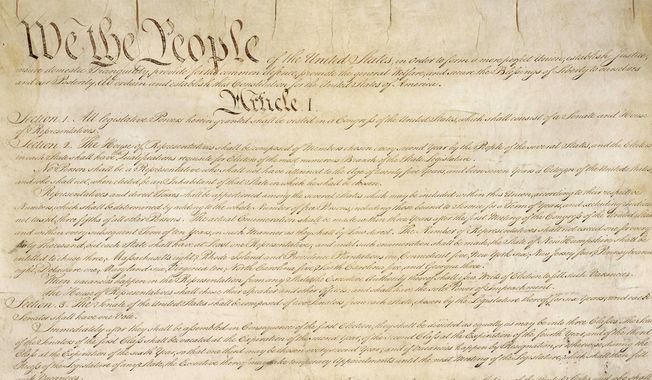


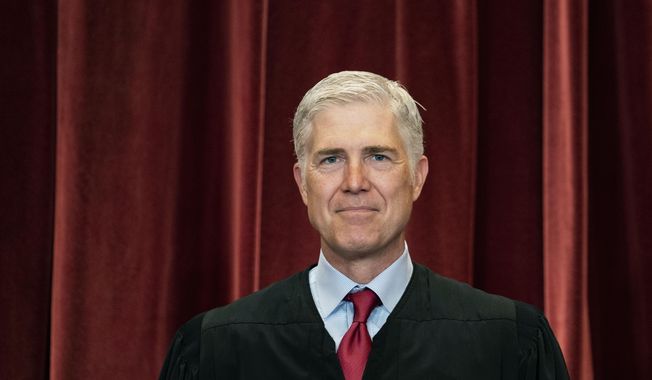

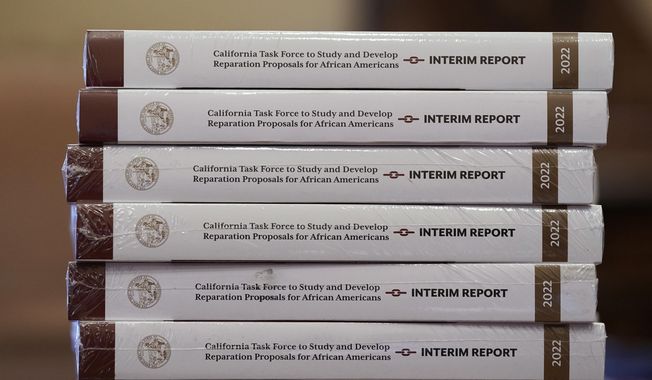

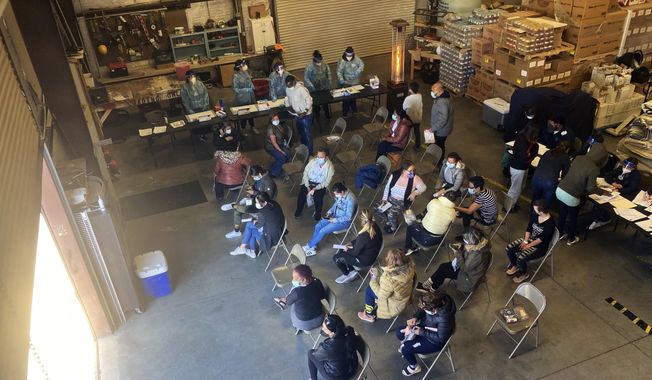
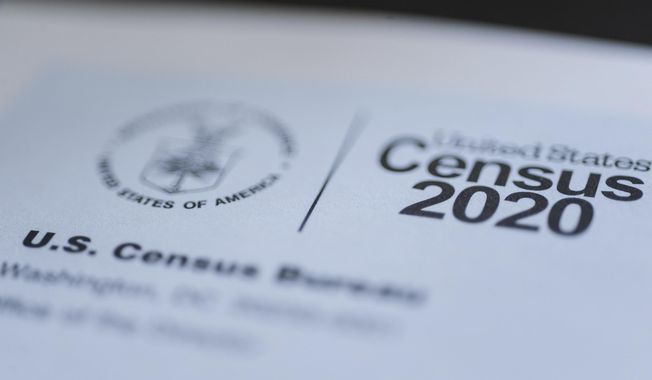
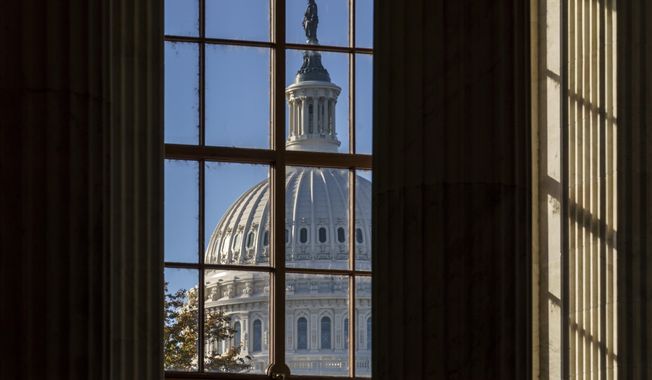
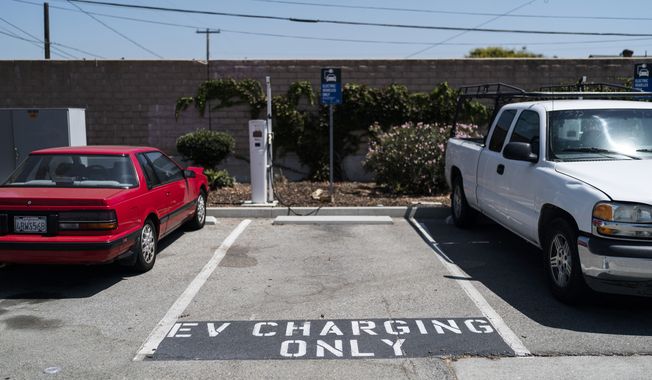
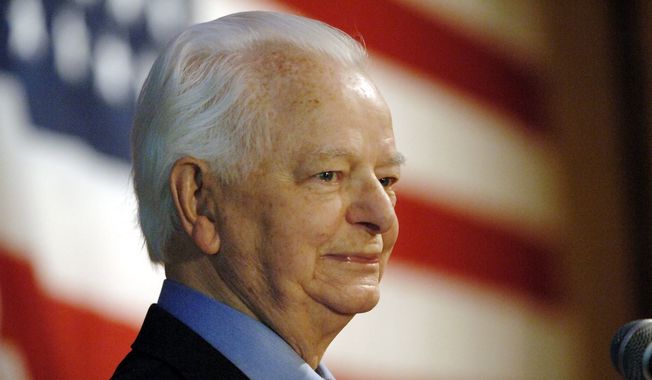
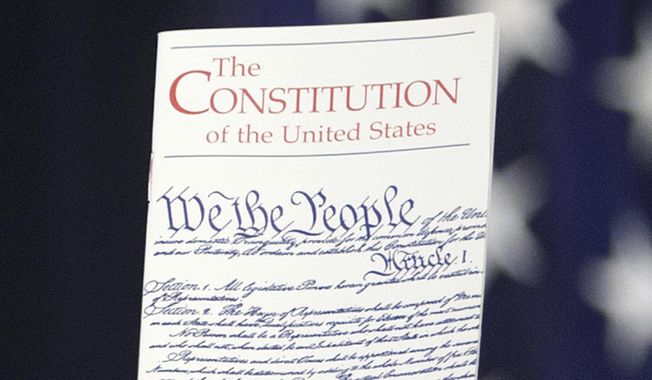
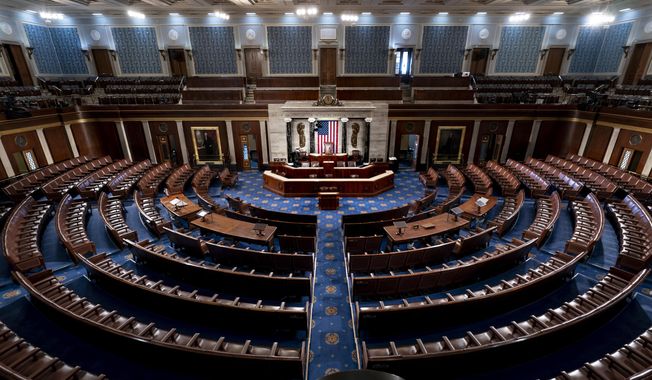
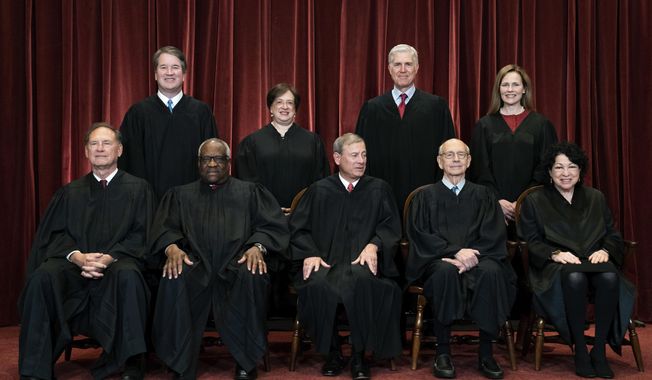
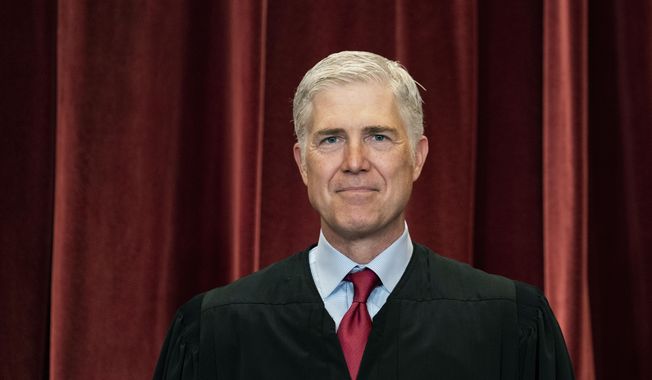
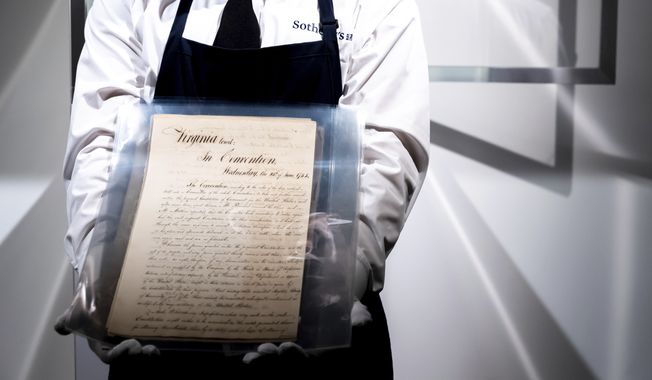
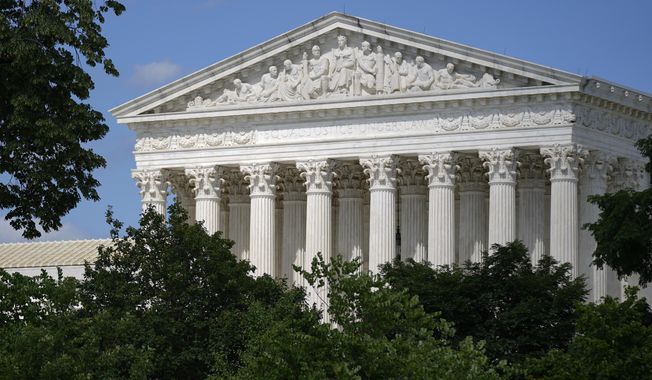
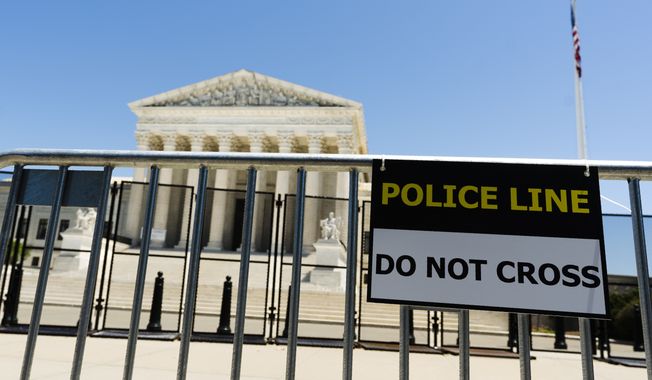
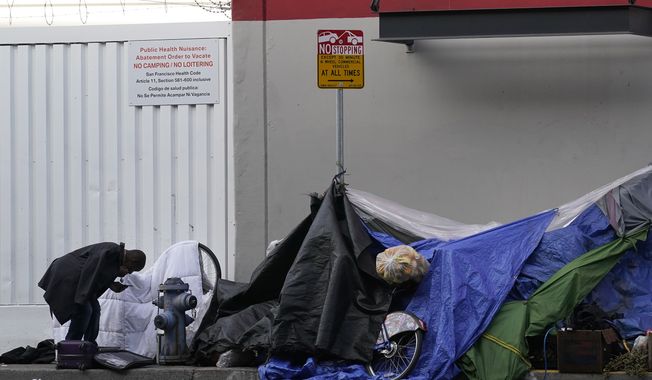
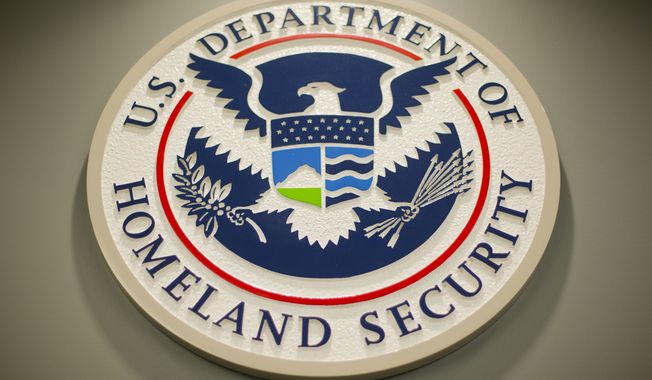

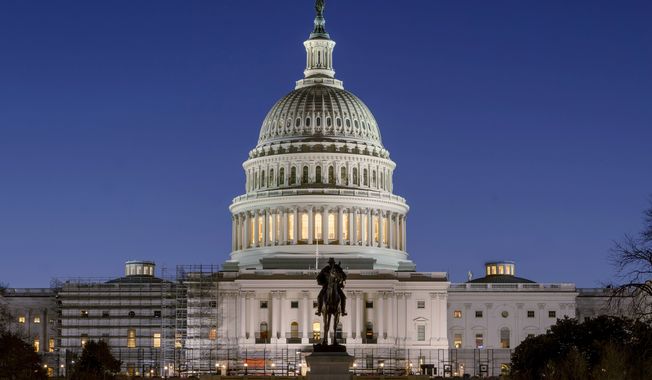
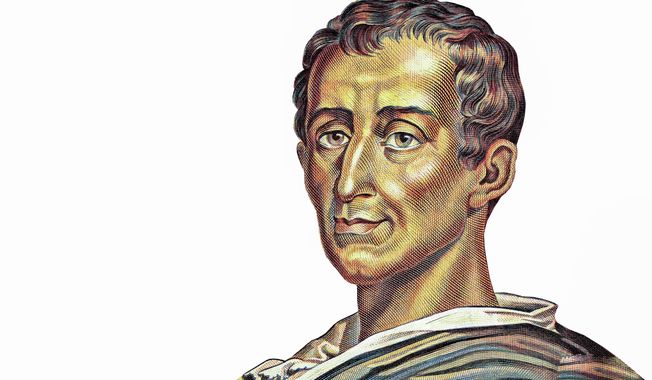

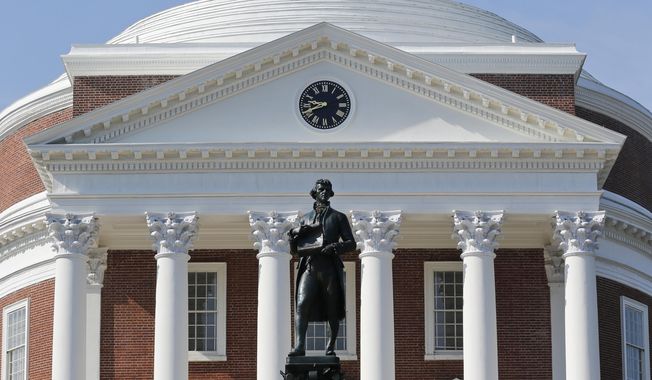
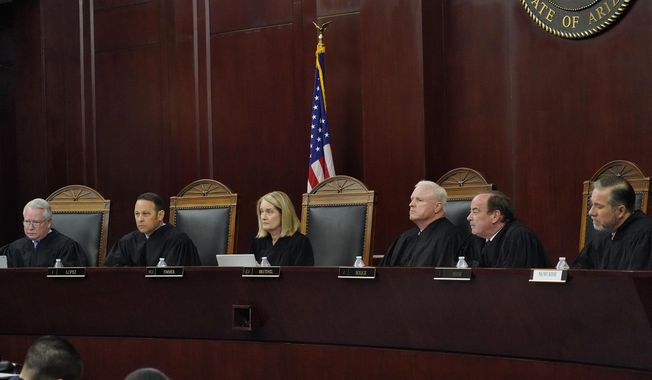
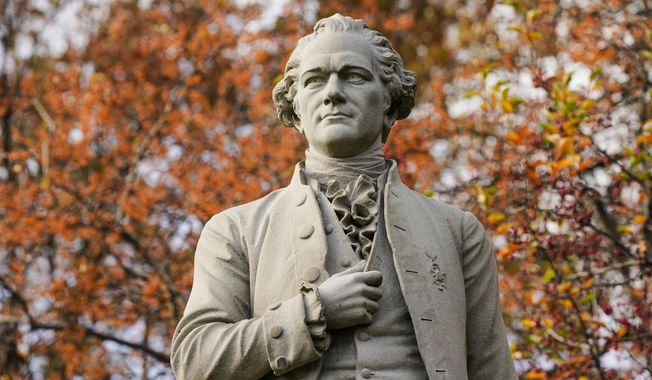
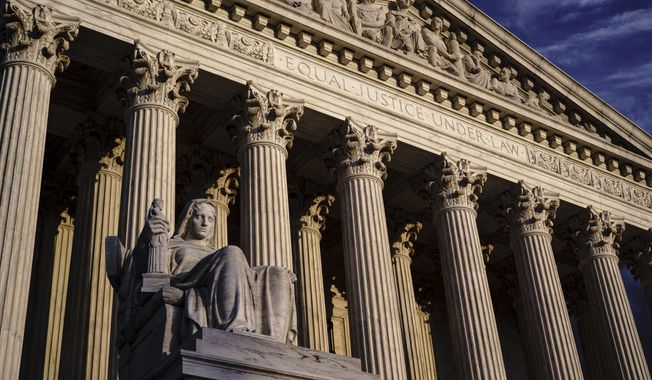

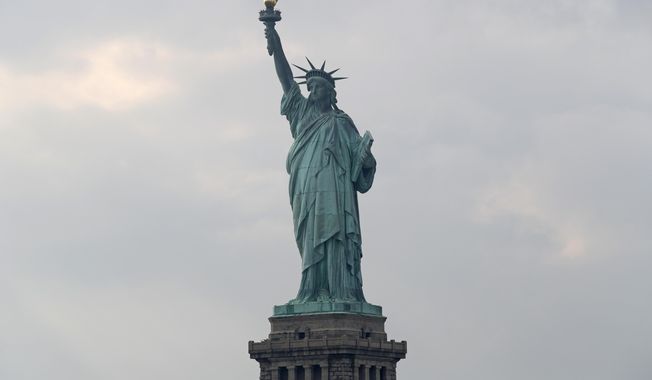

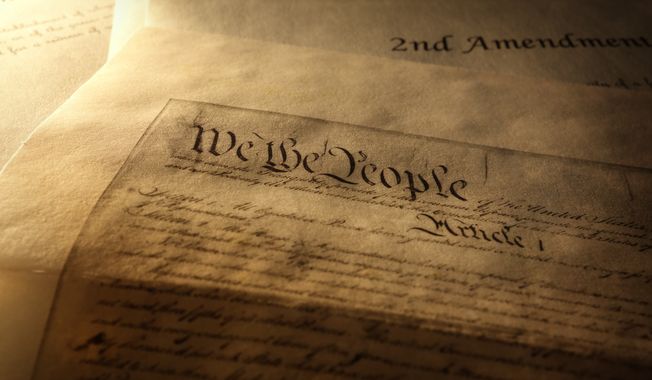
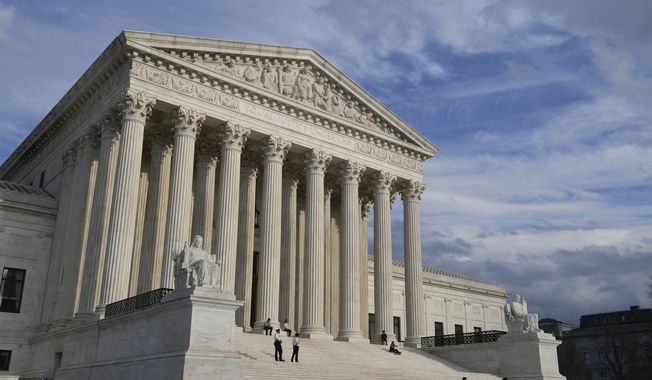

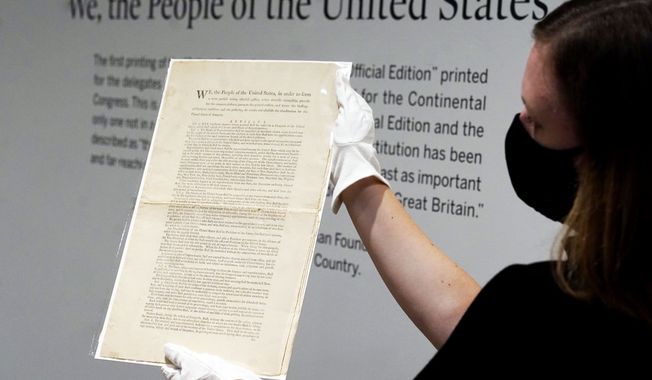

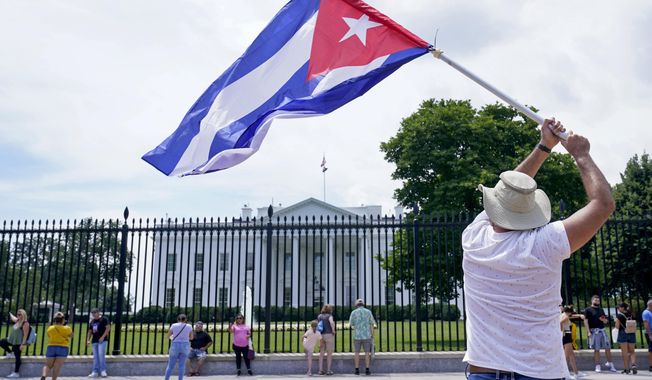
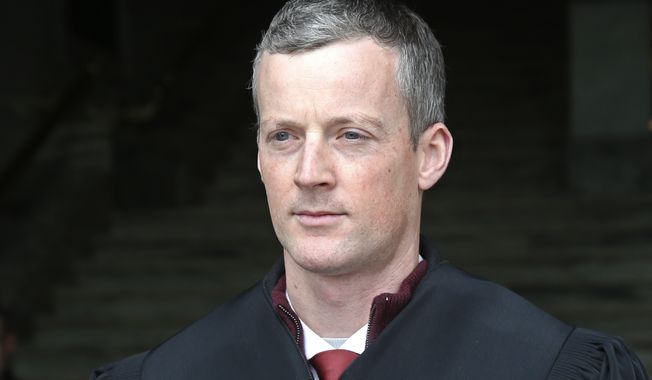
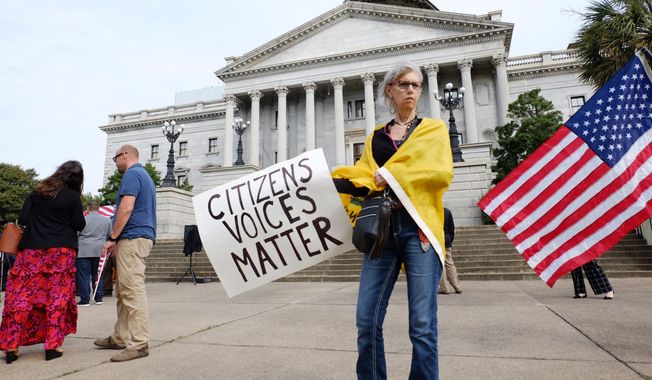
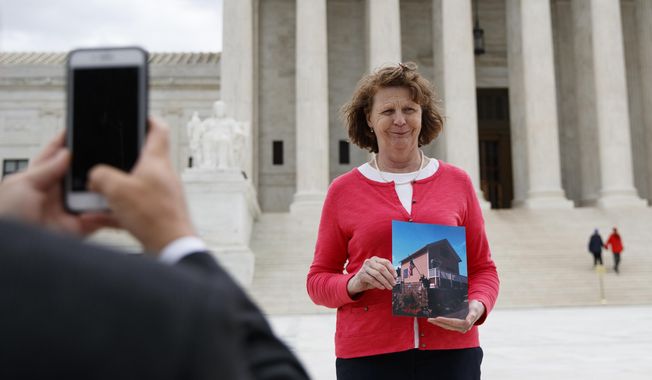

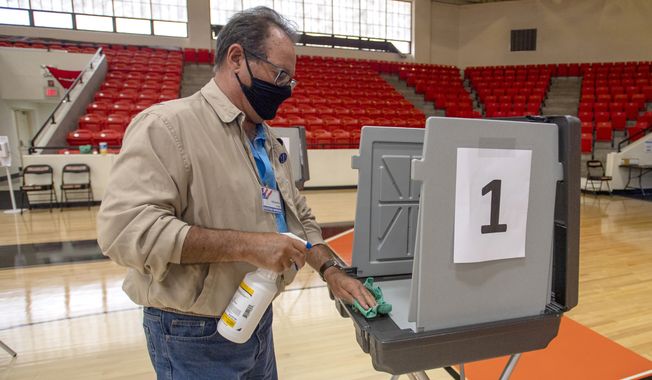
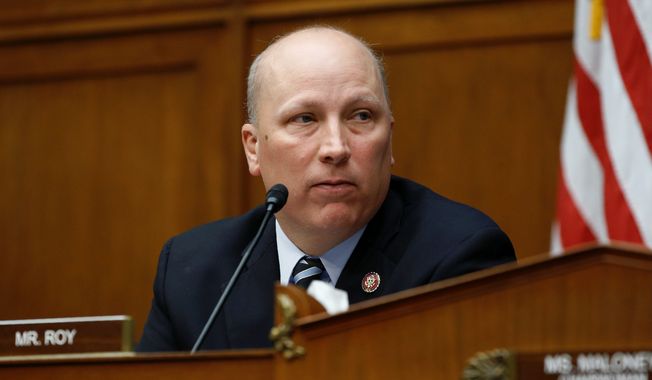
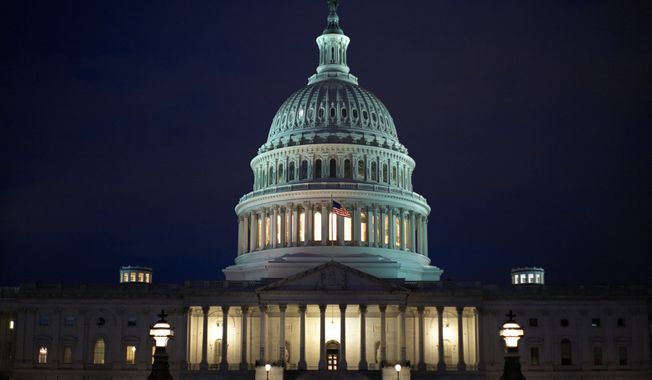
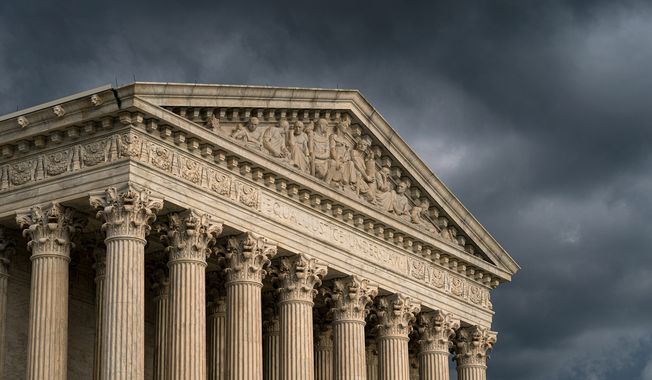

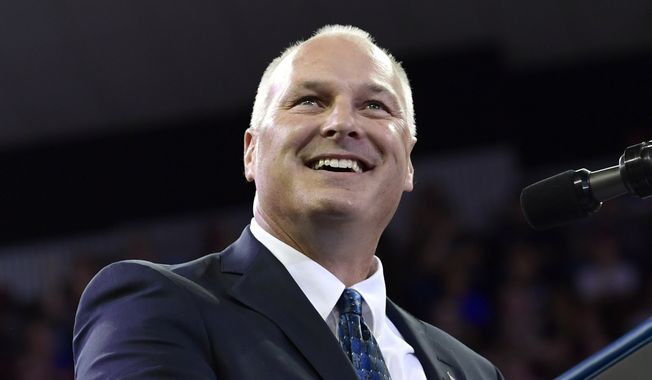

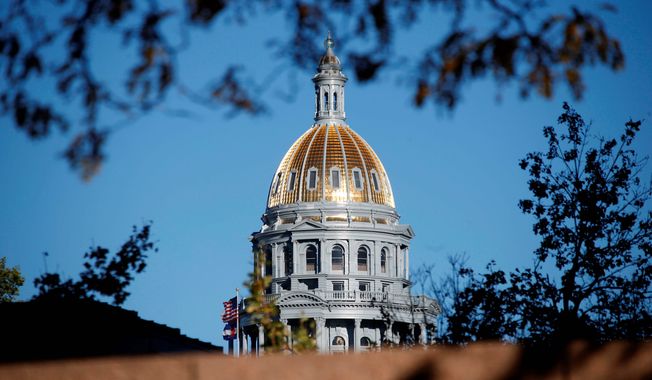
![“[Former President Donald] Trump was a norm-breaker. Some of those norms should not have been broken. The impeachment process is one means by which Congress can attempt to reestablish those norms,” writes Keith E. Whittington. (Senate Television via AP)](https://twt-thumbs.washtimes.com/media/image/2021/02/09/Trump_Impeachment_47127.jpg-cc78e_c48-0-2762-1582_s652x380.jpg?5a1c2ef72d72e035d751273d40189a63dffda777)
